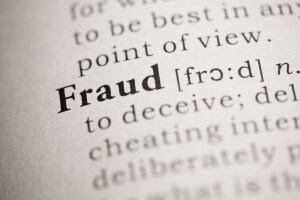 Insurance fraud occurs when someone knowingly falsifies information to obtain benefits that are not theirs to claim. It also occurs when one denies a benefit that to which someone else is due. This type of fraud includes:
Insurance fraud occurs when someone knowingly falsifies information to obtain benefits that are not theirs to claim. It also occurs when one denies a benefit that to which someone else is due. This type of fraud includes:
- Auto insurance,
- property insurance,
- homeowners insurance,
- health insurance,
- life insurance, and
- any other type of insurance available in the state of California.
Circumstances of Fraud
Depending on the circumstances of the fraudulent act, penalties may go through the Department of Fraud Division. On the other hand, the Fraud Division may handle it as a criminal matter in a court of law. Authorities can charge insurance fraud cases as felonies, however, some are not. Some are actually are misdemeanors, depending on the circumstances surrounding the case.
The California insurance fraud law seeks to prevent and punish false insurance claims intended to generate payments to an individual by insurance companies. Some examples of this fraud include:
- Submission of auto insurance claims from exaggerated or deliberate injuries,
- Doctors charging for services that not originally included in an estimate, or
- Faking an injury at work in order to be eligible for workers compensation.
Generally speaking, a prosecution for insurance fraud requires proof of the defendant’s intent to defraud.
Furthermore, if a prosecutor can prove the defendant knowingly make a false claim, or can show the defendant exaggerated the claim, then he has a case. The prosecutor will charge the defendant. If the attorney proves his case, the defendant is likely at risk of a guilty verdict.
Degrees of Fraud
There are varying degrees of fraud, beginning with small untruths, such as exaggeration on insurance claims. The more serious cases of insurance fraud include arson, destruction of property, theft, or faking an accident or injury in order to collect large insurance policies.
In order to protect the public from the stress and economic loss caused by insurance fraud, the State of California dedicates funding to the Fraud Division. This division actively investigates and arrests those who commit insurance fraud in the state of California. According to the Insurance Information Institute, fraudulent claims equal nearly $30 billion annually.
People who commit insurance fraud range from organized criminals who take large sums of money through insurance claims mills and professionals who inflate the cost of their services, to middle class men and women who exaggerate when filing an insurance claim in order to make extra money.
Penalties for Insurance Fraud
The punishment for this type of fraud depends on the specific type of fraud committed and the defendant’s activities specific to the case. If prosecuted as a misdemeanor in the state of California, insurance fraud carries a fine of up to $10,000, one year in county jail, or both.
In general, this type of fraud is a felony. Felony insurance fraud carries a fine of up to $50,000, or double the value of the defrauded amount, and up to five years in jail. If the felony is for worker’s compensation insurance fraud, the fine can be increased to $150,000 or double the value of the defrauded amount, depending on which penalty is greater.
For those convicted of insurance fraud with a felony conviction for fraud, the rules change. For this, a two-year enhancement may join up with their sentence. Additionally, California state court may require the defendant to pay restitution to the defrauded parties.
If you’ve been charged with insurance fraud in the state of California, an experienced criminal defense attorney can help.



